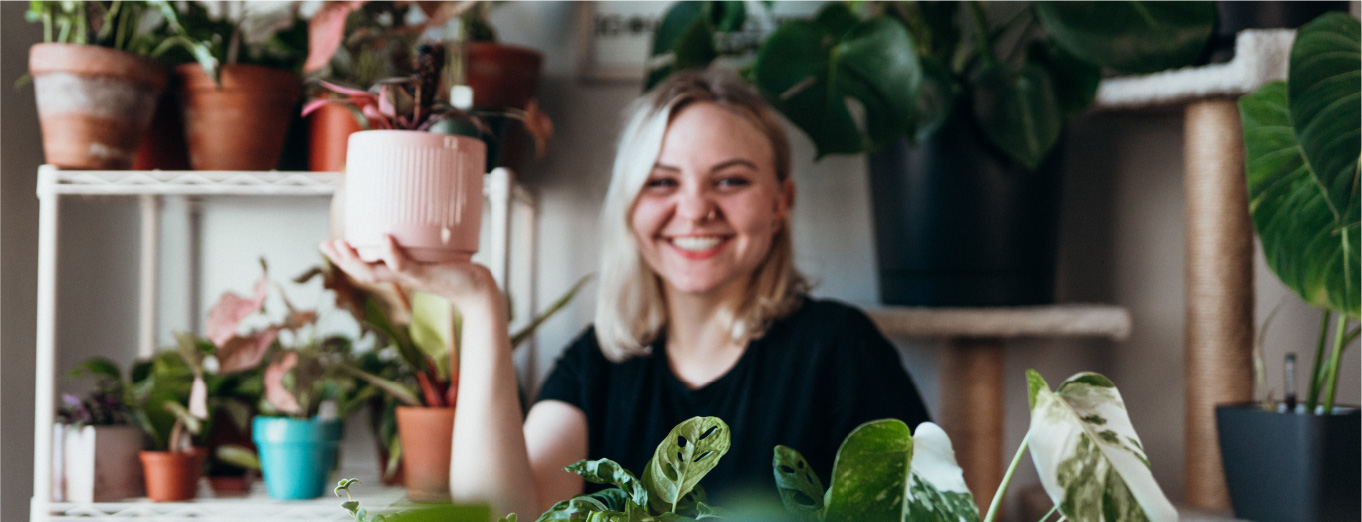How Caring for Plants Boosts Mental Health
The Science Behind Plant Therapy
The concept of using plants and gardening for therapeutic purposes is known as horticultural therapy. Research has shown that interacting with plants can reduce stress, improve mood, and enhance overall well-being.
Here are some of the key ways tending to plants can positively aid in mental health:
- Stress Reduction Gardening and caring for houseplants have been found to lower cortisol levels, the hormone associated with stress. The repetitive and mindful nature of tasks like watering, pruning, and repotting can provide a calming effect, helping to alleviate anxiety and promote relaxation.
- Mood Enhancement Spending time with plants can elevate your mood and increase feelings of happiness. The act of nurturing a living thing and witnessing its growth can create a sense of accomplishment and purpose. Additionally, being surrounded by greenery has been linked to increased levels of serotonin, the "feel-good" neurotransmitter.
- Mindfulness & Meditation Gardening encourages mindfulness—a state of being present and fully engaged in the moment. As you focus on the sensory experiences of gardening, such as the texture of the plant’s leaves, you can achieve a calmer and more present mindstate.
- Physical Exercise Gardening (or tending to a large houseplant collection) is also a form of physical activity, which is known to have numerous mental health benefits.
- Connection with Nature In our increasingly urbanized world, reconnecting with nature can have a grounding effect. Plants provide a tangible link to the natural world, reminding us of the beauty and resilience of life. This connection can foster a sense of tranquility and reduce feelings of isolation.
- Social Horticulture: Building Community & Connection Beyond the personal benefits, engaging in social horticulture—gardening in a community setting—can enhance social well-being and create meaningful connections. Community gardens, horticultural therapy programs, and plant swap events are just a few ways people come together through their love of plants. Here’s how social horticulture can boost mental health:
- Social Interaction Participating in group gardening activities provides opportunities for social interaction and the development of supportive relationships. This can help combat loneliness and create a sense of belonging.
- Shared Purpose Working towards a common goal, such as maintaining a community garden, fosters a sense of shared purpose and teamwork. This collaborative effort can build community spirit and improve collective well-being.
- Skill Sharing & Learning Social horticulture allows individuals to share knowledge, skills, and experiences. Learning from others and teaching new techniques can boost self-esteem and encourage personal growth.
- Volunteering & Giving Back Many community gardening projects have a philanthropic component, such as growing food for local food banks. Contributing to these causes can instill a sense of purpose and fulfillment, enhancing mental health through acts of kindness and generosity.

Bringing Plants into Your Life
Whether you have a sprawling garden or a few potted plants on your windowsill, incorporating greenery into your daily routine can have a profound impact on your mental health. Here are some simple ways to get started:
- Start Small Begin with a few easy-to-care-for plants, such as succulents, herbs, or ferns. As you gain confidence, you can expand your collection.
- Create a Routine Set aside time each day to tend to your plants. This routine can provide structure and a sense of responsibility.
- Join a Community Look for local gardening clubs, community gardens, or online plant enthusiast groups to connect with like-minded individuals.
- Experiment & Enjoy Don’t be afraid to experiment with different types of plants and gardening techniques. Enjoy the process and celebrate your successes.
Tending to plants and engaging in social horticulture is more than just a hobby; it's a path to mental wellness. By nurturing plants, we nurture ourselves, finding peace, purpose, and connection in the simple act of caring for green life.

Author Bio
As an avid gardener and creator of houseplant and self-care themed artwork, Chloë Sikarskie combines a love for art and nature to inspire others to find joy and tranquility within themselves and the green world around them.
Sources

